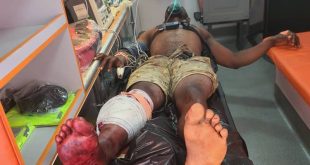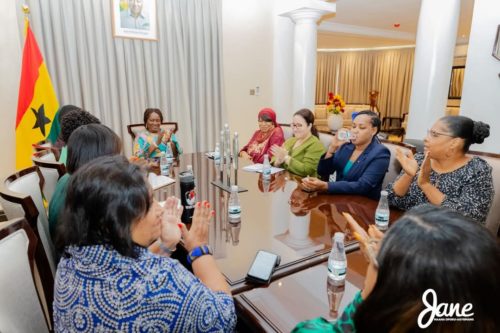
Vice President Professor Jane Naana Opoku-Agyemang has engaged in an extensive discussion with the Diaspora African Forum (DAF), a coalition of female ambassadors in Ghana, to explore collaborative efforts in tackling key national challenges. The meeting focused on food security, education, labor, and agriculture, with the ambassadors pledging their full support and commitment to advancing Ghana’s development agenda.
During the dialogue, the DAF delegation emphasized their mentorship initiatives for women, highlighting the importance of empowering female leaders and entrepreneurs across the continent. They also stressed the need for stronger country-to-country facilitation, recognizing the deep cultural and economic ties between Africa and its diaspora as a vital force for sustainable progress.
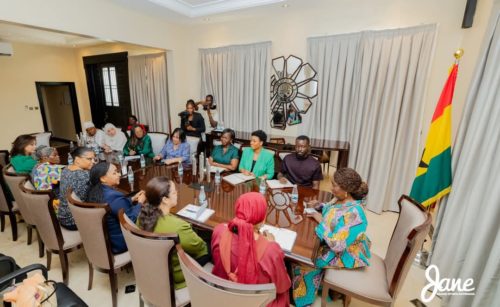
A Call for Self-Sufficiency and Innovation
In response, Vice President Opoku-Agyemang expressed profound gratitude for the unwavering support of the African diaspora and acknowledged its vast global influence. She, however, raised a critical question:
“Why does Africa, despite its enormous contributions to global development, continue to grapple with persistent challenges?”
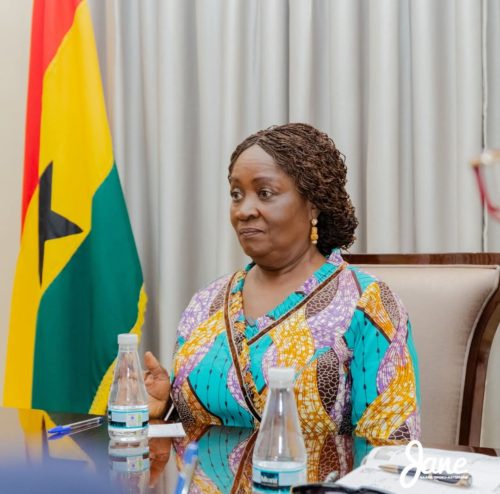
The Vice President urged African nations to prioritize self-sustaining initiatives and adopt homegrown solutions to economic and social issues. She emphasized that true empowerment lies in equipping women and girls with confidence, leadership skills, and access to opportunities.
She further stressed the need for research-driven policies that align with Africa’s unique identity, ensuring that interventions address the root causes of underdevelopment rather than merely treating the symptoms.
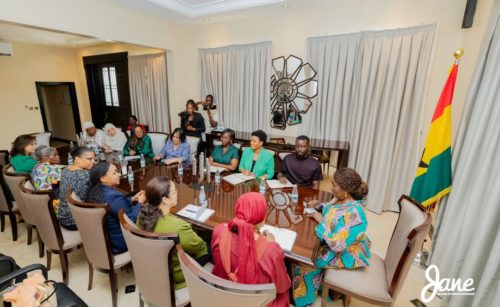
Key Development Priorities Outlined
The discussions centered on five priority areas where collaboration between Ghana and the African diaspora can drive meaningful change:
1. Rural Development: Enhancing the quality of life for market women by advocating for better market infrastructure to protect vendors from harsh weather conditions.
2. Women’s Health: Expanding healthcare beyond reproductive health to include mental health support for women.
3. Quality Education: Strengthening Ghana’s educational system to ensure high-quality learning experiences that prepare children for the future job market.
4. Empowering Small Businesses: Promoting and recognizing the economic value of small-scale enterprises, such as shea butter and soap production, as key drivers of economic growth.
5. Agricultural Sustainability: Establishing a robust irrigation system in northern Ghana to improve farming conditions and enhance local food production.
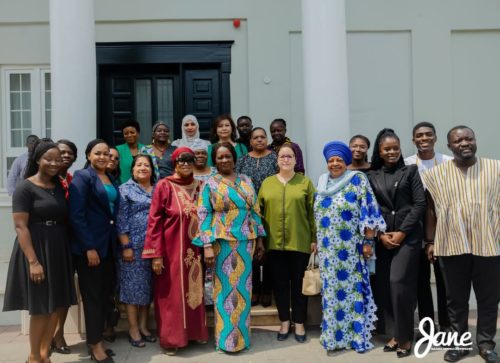
Forging Strategic Partnerships for Long-Term Progress
Vice President Opoku-Agyemang underscored the importance of building strategic partnerships that yield tangible and lasting results. She urged stakeholders to take bold, proactive steps toward addressing national challenges and ensuring Africa’s economic resilience through self-reliance and innovation.
The meeting concluded with a strong commitment to ongoing collaboration between the Government of Ghana and the African diaspora, reinforcing the belief that collective effort is the key to achieving sustainable development.
End.
 Choicenewsonline Your Choice Is Here
Choicenewsonline Your Choice Is Here


